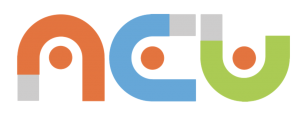Description
Active Blended Learning Micro Degree
Aim
Show educators how to easily and effectively teach with technology
Summary
Unlike most “Teaching with Technology” courses, this series of courses is based on a framework of digital-age pedagogies. Using the research-supported ACT pedagogy framework, you are shown how to easily and effectively apply a range of technologies to your teaching. In addition to learning how to apply many freely available tools for teaching, you will also develop lesson plans for each of the ACT pedagogies. This means that at the end of the courses you are ready to practically apply what you have learned.
The Active Blended Learning micro-degree consists of 7 courses:
- Active Blended Learning – Introduction (ABL-1) – Introduction to learning online and an overview of the ACT approach
- Active Blended Learning – Curation (ABL-2) – How to teach with technology using the Curation approach
- Active Blended Learning – Conversation (ABL-3) – How to teach with technology using the Conversation approach
- Active Blended Learning – Correction (ABL-4) – How to teach with technology using the Correction approach
- Active Blended Learning – Creation (ABL-5) – How to teach with technology using the Creation approach
- Active Blended Learning – Chaos (ABL-6) – How to teach with technology using the Chaos approach
- Active Blended Learning micro-degree (ABL-7) – Final assessment and conclusion
You will receive a certificate on the successful completion of each course. You can only progress to subsequent courses on successful completion of all previous courses. ABL-7 is the final certification assessment that covers content from all of the Active Blended Learning courses.
Active Blended Learning – Introduction (ABL1) (approx. 4 hrs)
This first course in the certification aims to introduce you to the basics of learning online and provides an overview of the ACT approach. By the end of this course, you will have a basic understanding of the importance of active teaching and learning and the ACT model that underpins the courses.
Active Blended Learning – Curation (ABL2) (approx. 6-8 hrs)
This second course in the certification aims to explore the first of the ACT pedagogies, the pedagogy of curation. By the end of this course, you will have an understanding of the importance of active teaching using curation as well as tools that can be used to support this pedagogy.
Active Blended Learning – Conversation (ABL3)(approx. 6-8 hrs)
This third course in the certification aims to explore the second of the ACT pedagogies, the pedagogy of conversation. By the end of this course, you will have an understanding of the importance of active teaching using conversation as well as tools that can be used to support this pedagogy.
Active Blended Learning – Correction (ABL4) (approx. 6-8 hrs)
This fourth course in the certification aims to explore the third of the ACT pedagogies, the pedagogy of correction. By the end of this course, you will have an understanding of the importance of active teaching using correction as well as tools that can be used to support this pedagogy.
Active Blended Learning – Creation (ABL5) (approx. 6-8 hrs)
This fifth course in the certification aims to explore the fourth of the ACT pedagogies, the pedagogy of creation. By the end of this course, you will have an understanding of the importance of active teaching using creation as well as tools that can be used to support this pedagogy.
Active Blended Learning – Chaos (ABL6) (approx. 6-8 hrs)
This sixth course in the certification aims to explore the fifth and last of the ACT pedagogies, the pedagogy of chaos. By the end of this course, you will have an understanding of the importance of active teaching using chaos as well as tools that can be used to support this pedagogy.
Active Blended Learning – Certification (ABL7)
This seventh course aims to test what you have learnt on all of the ACT pedagogies. You will be given a variety of different (and fun tests) to examine your understanding. By the end of this course, you will have an understanding of the importance of active teaching using all the ACT pedagogies as well as tools that can be used to support this pedagogy.
Tools and Technologies
All ACT courses are based on a pedagogically grounded approach and as such are applicable using any tools and technologies. So the approaches you learn will work whether you are a Microsoft or Google school, a Laptop or Tablet School, a highly resourced or lower resourced school. Below are some of the tools covered in the course include. (Note: This is just an indication as we constantly update the tools and technologies we use).
Learning Approach
The course is based on the ACT pedagogies and so involves active learning from curating content to online conversations, to quiz-activated videos, and much more. The course is also gamified to further encourage participation.
Assessment
The course uses a range of assessment approaches because learning through curation, conversation, correction, creation, and chaos are core pedagogies of the course. As such assessment is based on:
- Stash Points – Careful reading and finding of stash items (curation)
- Quiz Points – Section quizzes that can be attempted multiple times (correction)
- Course Activity – Participating in forums and activities, and creating lesson plans (curation, conversation, creation, chaos)
- Final Assessment – Time-based Summative Quiz (correction, chaos)
The course also includes a copy of the book “Active Blended Learning – 5 proven ways to bring engagement to 21st-century teaching” by Dr. Craig Blewett.




